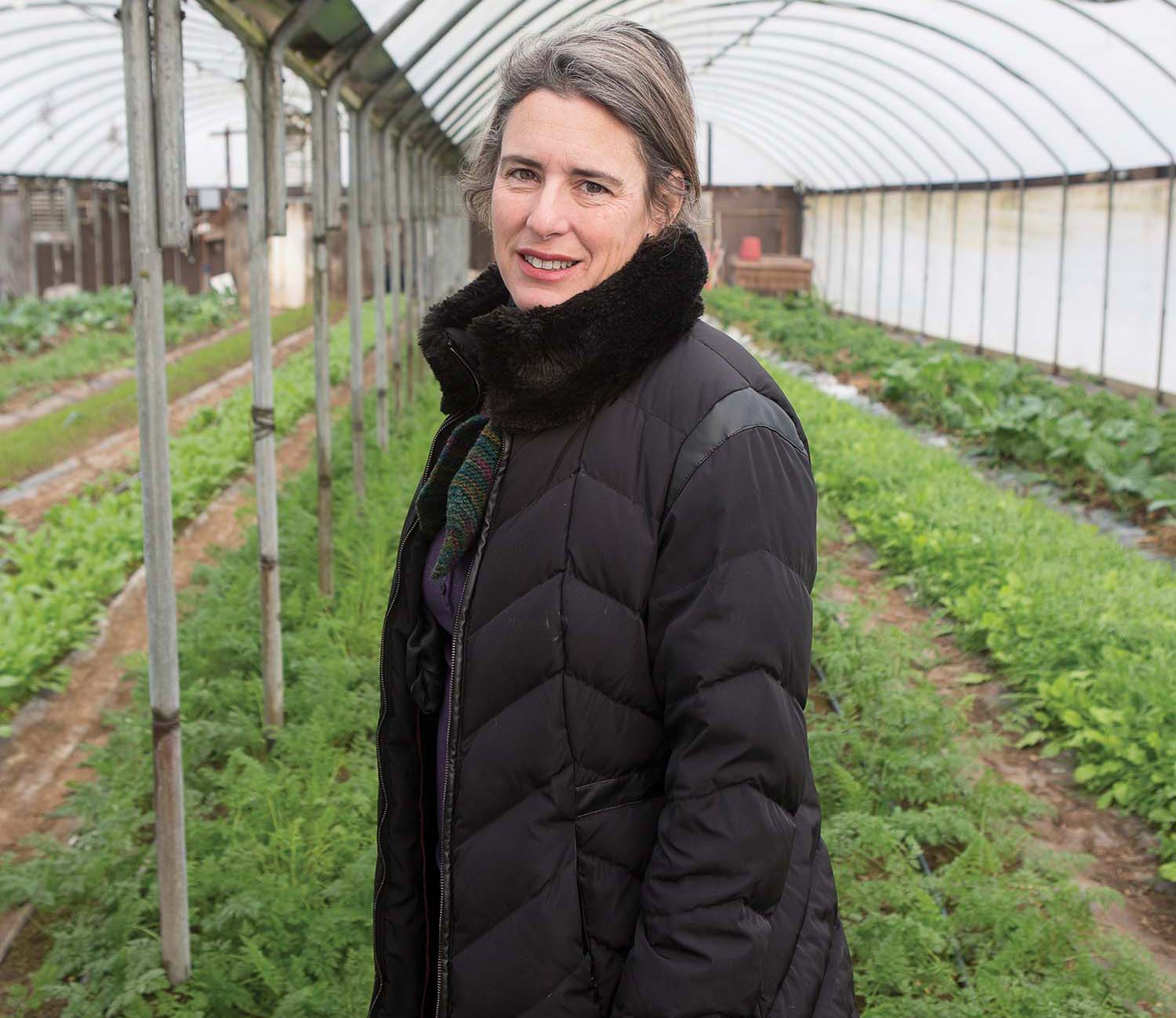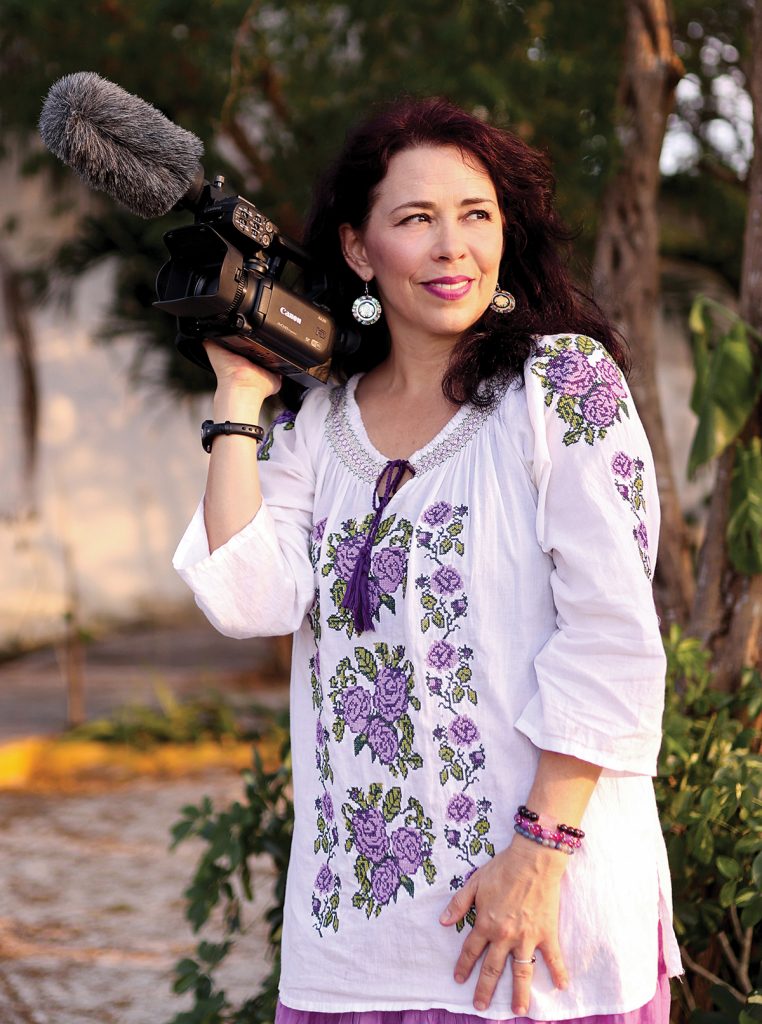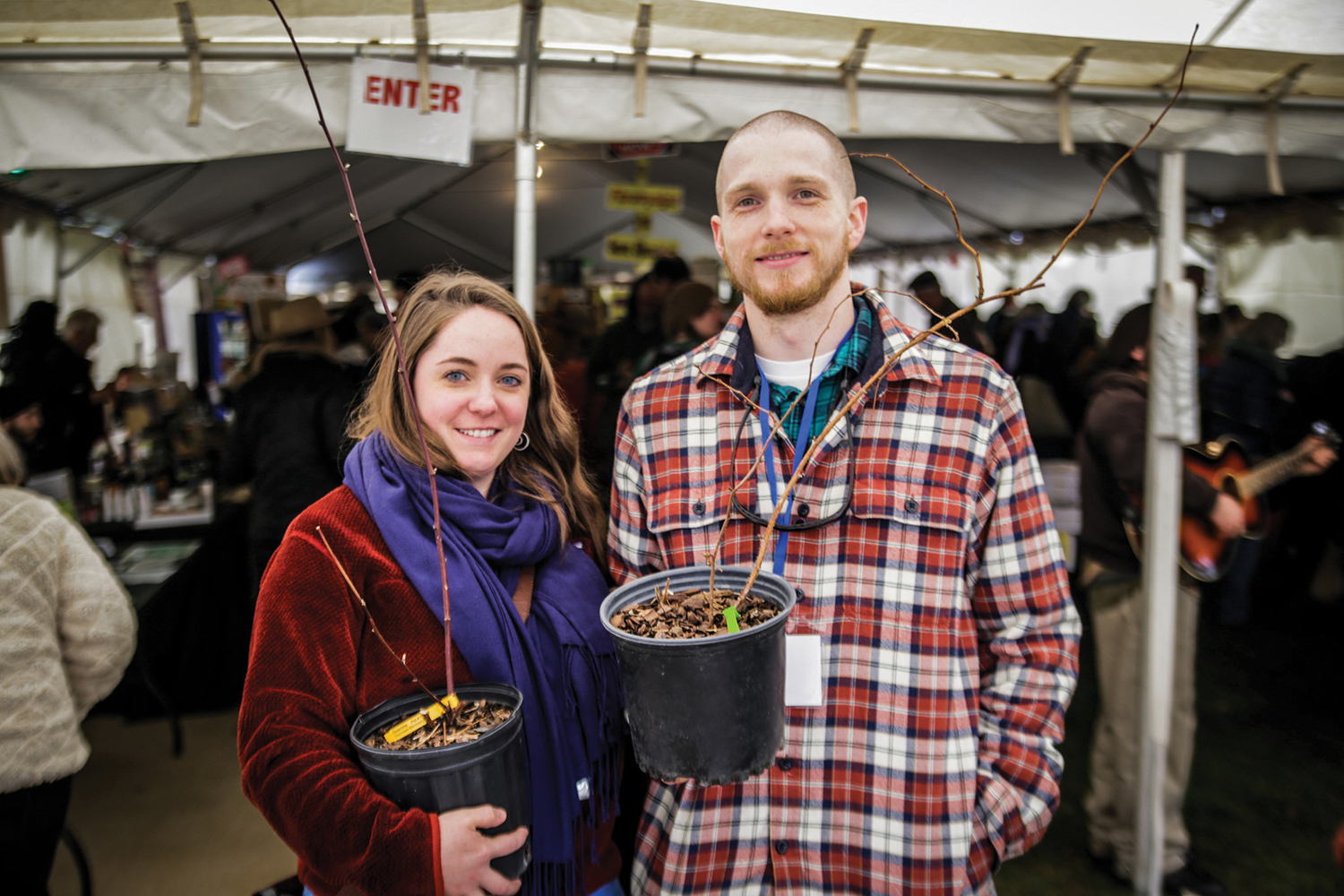
“We’ve become a food-illiterate population … and we’re feeling the consequences,” says Lee Warren. Photo by Matt Rose
In the winter, when nothing is really growing, the would-be homesteader’s thoughts turn to squeezing sorghum and raising laying hens. Urbanites might consider installing a roof apiary to produce honey or rigging a greywater-catchment system for plumbing use.
According to Lee Warren, executive director of the Organic Growers School, Southern Highlanders both native and new are revisiting the land-based lifestyle lived by locals a couple centuries ago. “One-hundred-and-fifty years ago, 90 percent of the U.S. population farmed. Today, it’s less than two percent,” she says. “We’ve become a food- and growing-illiterate population, and we’re missing so much because of that. People have started to feel the consequences.”
Hosted at Living Web Farms in Mills River, Homestead Dreams, a program of the school, is an entry-level workshop aimed at introspection. Rather than turn compost or shear sheep, participants spend the day mapping their land, defining attainable goals, and speaking with a panel of experts. This season’s panel features representatives from Living Web. “We have a longstanding relationship with OGS as fellow educators in the farming and food realm here in Western North Carolina,” says Meredith Leigh, the farm’s outreach coordinator.
With time for roundtable discussion — including a group lunch — the course is more conceptual than other OGS offerings. (Its main event is a three-day spring conference in March, held at UNCA.) “We’re not teaching people to make sauerkraut,” explains Brandon Greenstein, director of the school’s Coaching and Consulting Services. “The workshop is theoretical — it’s what we call ‘exploratory.’”
From the get-go, Warren and Greenstein have folks list their top three values, resources, and skills. They might, for instance, want to minimize carbon output by installing solar panels in their home, or reduce trips to the grocery store by canning food. “Some want to grow all of their resources, homeschool the kids, or just make their own clothes,” continues Greenstein. “The definition of homesteading differs from person to person.”
Homestead Dreams is the backyard alternative to Farm Dreams, a longstanding workshop suited for prospective commercial farmers. While homesteaders might seek a value-added business model (e.g. selling goat-milk soap or fresh kale pesto), commercial farmers see their crops as a solid revenue stream. But the two day-long courses share common ground nonetheless. For one, both are offered in the cooler months. Besides the February session, OGS plans to host Homestead Dreams again in October — because although winter isn’t the best time for digging, “it’s a good time for classroom learning,” notes Warren.
Both introductory seminars are designed to give learners a realistic look at land-based living. “We talk a lot about the foibles and challenges involved,” says Greenstein. “We want people to explore, but we also want them to be methodical.”
Warren agrees. “It’s all about balance,” she says. “Part of what we teach is that homesteading is a lifelong journey. It can’t all be learned in one day.”
Homestead Dreams will be hosted at Living Web Farms in Mills River (176 Kimzey Road) on Saturday, February 17, from 10am-5pm. Cost is $65. Participants are encouraged to bring lunch. For more information, call 828-214-7833 or visit organicgrowersschool.org.


